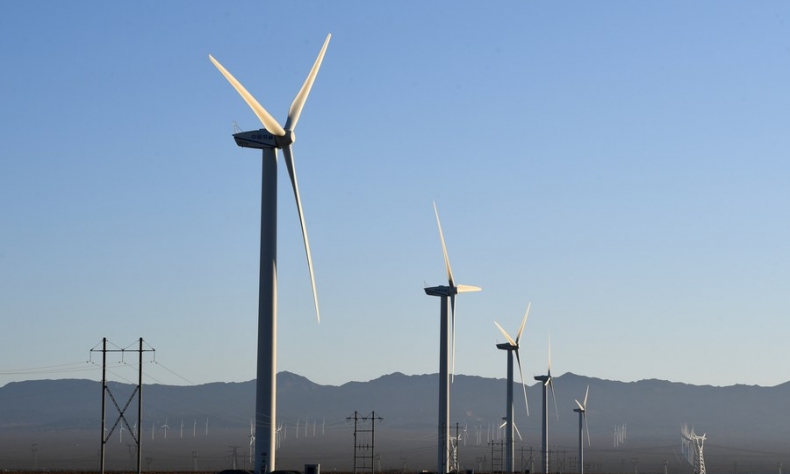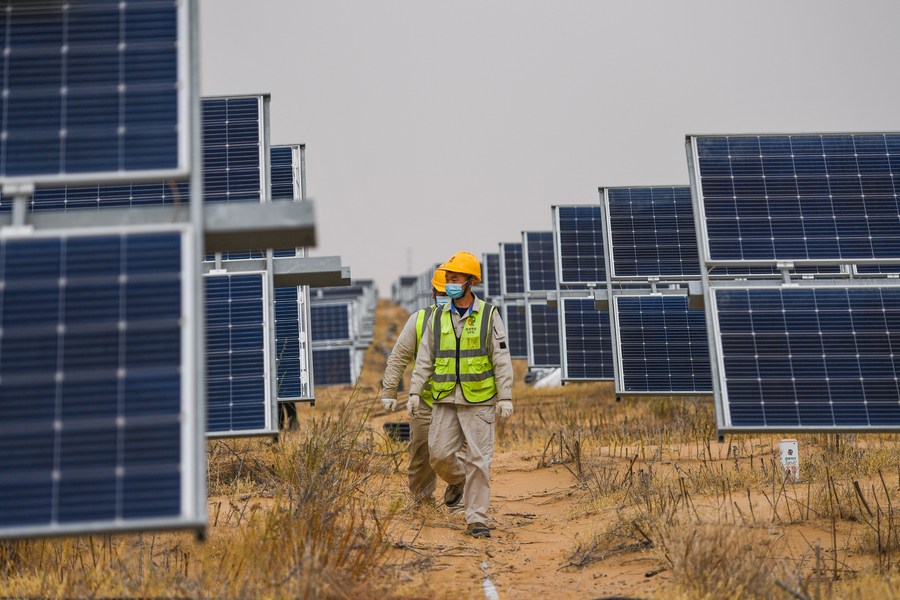Insight Talk: China’s Role in Climate Change and Energy Transition

In traditional Chinese philosophy, challenge is opportunity. We find the way out as a synergy of three different policy objectives, growth, energy security and climate change.
Editor’s Note: 30 years ago, the “United Nations Framework Convention on Climate Change (UNFCCC)”, which is the world’s first international convention to address global climate change, was signed in Brazil. Since then, more detailed international mechanisms like the “Kyoto Protocol” and the “Paris Agreement” have followed. How has China’s role changed in addressing climate change? How to balance economic development, energy security and climate change? Prof. Zou Ji, CEO & President of Energy Foundation China, also a member of Chinese delegation for UN Climate Change negotiations, gives his insights into this global issue in a joint interview with China Focus and Energy Observer, a monthly magazine dedicated to reporting energy industry and sustainable development.
How has China’s role changed in addressing climate change over the past decades?
Zou Ji: That’s certainly based on different stages of the development and the fundamental change for China in global climate agenda. Around the time for negotiation of the Paris Agreement, China stands in another historic point, that means shifting from emphasizing emission right to development path innovation. We continue to increase our economy to make growth, but we needn’t to rely too much on emission. Rather, we will rely on technology, innovation, human resources, development, etc. China is one of the leading forces to shape and also to make the Paris Agreement with the major economies in the world, including U.S., Europe and major developing countries.
What role will China play in the future? And what aspects can China improve in tackling climate change issues in the future?
Zou Ji: China will and should play more and more important role in today’s and future’s world for global climate agenda. This is China’s desire to make a harmonious relation between the nature and human beings. We call it ecological civilization.
And China has capacity to invest in R&D for technology and innovation. In that way, we can expect more innovative technology and also infrastructure to address climate issue on the basis of technology, basis of mitigation and adaptation to climate change. In the past decade, renewable cost had reduced 90 percent. The cost of those technologies will become cheaper and cheaper. And we can enjoy that not only for China, but also for the whole world by technology transfer, and also by a normal international trade and cooperation.
And if all those kinds of advantages can be used all over the world, we should be more confident to curb global warming process.
Are there any successful cases in the energy transition in China?
Zou Ji: We have two major types of renewables, the first one is a centralized base of renewable normally located in northern, northwestern and northeastern China. So just take Inner Mongolia as an example, we have had a lot of solar and wind power based there and for the moment most of those renewables have been used locally with very cheap energy price. In the meanwhile, they also transmit those green power and renewables to more energy intensive regions like Beijing, Jiangsu, Shanghai or Shandong provinces. In that way, they are changing the portfolio and the landscape of energy.

Another type is distributed renewables. With microgrid installed, we provide clean and zero carbon energy for farmers, for the people in rural area. We help them improve their livelihood. And these can show very huge potential for China. On one hand, economy grows continuously, but without or with much less increase of emission.
As global economic growth slows down and energy security becomes increasingly prominent, how to better balance economic development, energy security and climate change?
Zou Ji: In Chinese traditional philosophy, challenge is opportunity. We find the way out as a synergy of three different policy objectives, growth, energy security and climate change. Today, I think the most urgent thing is to enlarge investment. I would propose to invest in a green and low carbon area because this is a new area. That means these will create additional or incremental demand for goods and services.
And on the other hand, for consumption, we see very shining sale of electric vehicle in Chinese market that contribute to the consumption very much and furthermore to support the growth. And in that way, we saw more and more penetration of electric vehicle can replace a lot of oil. By the way, for China, over 73 percent of its oil use relies on import. So that’s a very big energy security issue. But if we can apply more and more electric vehicles, we can use less and less oil. I think it’s worth to develop renewable to power electric vehicle in that way. We reduce normal airborne pollutants for better air quality, we reduce carbon dioxide emission and we enhance energy security. In the meanwhile, we support economic growth.
We have seen more and more opportunities for that. So that means low carbon energy transition is becoming a growth driver rather than growth barrier.
Reporters of Energy Observer: Jiang Weihuan, Jiang Tao
Editors of Energy Observer: Feng Jie, Chen Yifang
 Facebook
Facebook
 Twitter
Twitter
 Linkedin
Linkedin
 Google +
Google +










